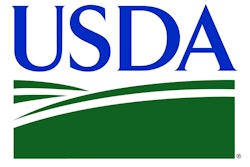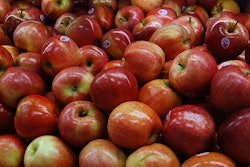Jamesport, MO: Northwest Missouri's Amish spent time preparing for a new federal food safety law that will impact produce-growing operations.
University Extension held a meeting in the Jamesport area, attended by about 50 Amish residents, in part to review the Food Safety Modernization Act. The FSMA became law last January.
Amish growers sell their products at the North Missouri Produce Auction, a partnership owned by local shareholders that runs out of a facility near Jamesport and is directed to wholesale buyers. The law will likely phase in such brokered enterprises by 2014 or 2015.
Members of Stanberry's Amish community spoke with the Jamesport growers to explain the law's requirements. David Markwardt -- who is a US Department of Agriculture program manager on produce and food safety and active in 13 states -- helped answer questions.
"I've been working with the Amish people for several years now," he said.
Large produce buyers have been behind the legislation, which officials said is still being refined through a rules process. Mr. Markwardt said the Stanberry produce growers sought him out for assistance.
"They have a company that purchases their product, and they wanted them to learn food safety," he said.
Many commercial growers -- such as those involved in the potato and apple industries -- have also begun implementing the act, according to Mr. Markwardt.
Ura Gingerich of Stanberry said his community has been aware of the impending food safety regulations for several years.
"I was a guinea pig the first year, in 2009," he told the Jamesport growers. A total of 10 Stanberry area growers became certified this year in the Good Agricultural Practices (GAP) program, a voluntary third-party effort that promotes food safety on farms and dovetails with the law.
Consistent water testing is one important standard of maintaining the certification, Mr. Gingerich said.
"We need to keep the livestock out of our ponds for 90 days before harvest," he added.
Mr. Markwardt said the law is intended to foster food safety that was absent in preventing outbreaks of E. coli and other food-borne illnesses for the past five years.
"The idea behind it is reducing your risk," he said, stressing that Stanberry's growers continue improving safety each year. "Remember, you're trying to eliminate cross contamination."
The GAP program does call for copious recordkeeping -- even if that means monitoring family progress in understanding the precepts, Mr. Gingerich said.
"As far as hygiene practices, it really has improved," he said.
Farmers' markets will be exempt from the law, said University Extension horticultural specialist Jim Quinn, unless they sell more than $5,000 of merchandise.
"That's the reality of society now," Mr. Quinn said. "We're selling produce to that society."
An additional GAP overview is set for Jan. 5, as part of the 2012 Great Plains Growers Conference at Missouri Western State University.

















